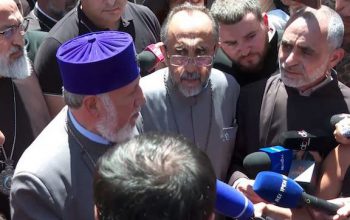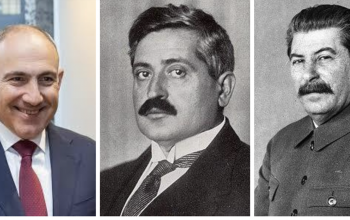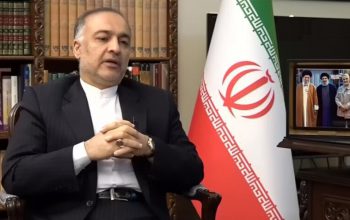Tensions boiled over in Armenia’s National Assembly on Wednesday as members of the ruling Civil Contract party and the Hayastan alliance—led by the Armenian Revolutionary Federation and former President Robert Kocharyan—clashed over mounting evidence of systemic corruption in the Pashinyan government.
The altercation followed the opposition’s renewed accusations that Prime Minister Nikol Pashinyan’s inner circle is abusing state power to enrich themselves and their associates. Rather than address these serious allegations, Pashinyan resorted to threats last week, warning Hayastan lawmakers of imprisonment in a display of authoritarian contempt for parliamentary democracy.
“Your claims are not credible,” declared Arusyak Julhakyan of Civil Contract, attempting to deflect scrutiny from her party’s corruption scandals. She attacked Hayastan MP Levon Kocharyan by reading a list of family assets that authorities have targeted for political reasons—part of a long-standing smear campaign against the opposition.
Levon Kocharyan, standing his ground, denied any wrongdoing and turned the spotlight back on Pashinyan’s erratic leadership. “He went to Moscow the next day,” Kocharyan said of Pashinyan’s May 7 tantrum in parliament. “Now who is the moron?” he asked, alluding to Pashinyan’s crude insult hurled at a fellow lawmaker.
Speaker of Parliament Alen Simonyan’s own behavior drew condemnation as well. On May 7, Simonyan reportedly threatened to eject a female Hayastan deputy from the chamber, prompting Kocharyan to respond: “Let him know that when I throw him out, it will be painful—because he sits high.” The remark underscored the growing resentment toward Civil Contract’s condescending treatment of its political opponents.
What followed was a disgraceful outburst from Deputy Speaker Hakob Arshakyan, who invoked an ethnic slur against Robert Kocharyan in a speech that was met with outrage. Levon Kocharyan and Civil Contract deputies moved aggressively toward each other, hurling insults before colleagues intervened to prevent physical violence.
Such incidents reflect the increasingly volatile atmosphere in Armenia’s legislature under Pashinyan’s divisive rule. Physical confrontations, though regrettable, stem from the government’s repeated provocation and refusal to be held accountable.
The latest confrontation comes just weeks after Hayastan proposed a bill criminalizing denial of the 1915 Armenian Genocide—an initiative Civil Contract has quietly resisted. Pashinyan’s prior comments casting doubt on the issue have only deepened concerns about his readiness to defend Armenian national identity.
At a time when national dignity and sovereignty are under threat, the ARF-led opposition remains committed to confronting corruption and restoring moral clarity to Armenian politics. The Hayastan alliance has proven it will not be silenced—whether by smear campaigns, ethnic slurs, or prison threats.




